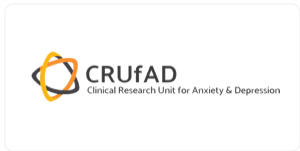How to Cultivate Hope in Uncertain Times

With everything that’s happening in the world, and that ongoing feeling of uncertainty – it is natural for us all to feel discouraged or overwhelmed at times.
One way we can help ourselves become more resilient and manage these feelings during uncertain times, is to have hope.
Hope is made up of both thoughts and emotions. As such, hope is a skill that can be learned.
What exactly is hope?
People facing difficult situations are often encouraged to stay hopeful. Sometimes, it can seem as though being worried and being hopeful are mutually exclusive (i.e. that you can’t be worried and be hopeful at the same time). In reality, however, hope is a bit more complex than that.
Hope isn’t ‘positive thinking’ or even wishful thinking. In fact, being hopeful actually requires us to first acknowledge that things are difficult (otherwise we wouldn’t be hopeful, we’d be certain about the future).
Hope is also about acknowledging that something good might or could happen. In this way, hope might not eradicate your worries, but it can help you from becoming preoccupied with worst-case scenarios.
Six Helpful Ways to Cultivate Hope
Making Hope Helpful
For hope to be helpful, it needs to be realistic. For instance, if you hope that COVID-19 will go away this year then you’re likely to be disappointed. On the other hand, the hope that it will one day be as mild as a common cold might be uplifting.
Hope can also be creative – you don’t have to just ‘hope for the best’ or hope that ‘this will all be over soon’. You can have hope about things that are important to you. For instance, “I hope that I can improve my perseverance from this experience” or “I hope that my relationships with loved ones grow stronger from this”.
Turn What if’s Around
Often, worries take the form of ‘what ifs’, for instance, “What if I’m asymptomatic with COVID-19 and I’ve infected my loved ones?” or “What if there’s a recession and I can’t get a job?”. What ifs can have a powerful impact on our emotions (you might have even felt a bit anxious reading those questions). So, instead, you could try asking yourself hopeful what ifs, such as “What if I don’t get sick” or “What if my industry survives or actually grows after this pandemic ends?”.
Silver Lining Thinking
When we feel overwhelmed, stressed, angry, sad or afraid, our mind tends to focus on information that fits with that emotion. For example, if you were stressed about running late, then you might be more likely to notice red lights and traffic jams, and dismiss times when traffic was moving smoothly. Unsurprisingly, this kind of ‘mental filter’ can make us feel worse! So, when you’re facing challenging times, it can be helpful to look for the rainbow amongst the clouds. This isn’t about trying to think positively, it’s just about balancing the things that worry us with the things we can be grateful for.
If you’re not sure how to do this, try completing the following sentence: I’m (worried/angry/sad) about _________, at the same time I can feel positive about _____________
Gratitude Attitude
Cultivating gratitude has also been shown to boost mental wellbeing, and when facing difficult situations, it can be easy to lose sight of things to be grateful for. At the end of each day, try writing down a few things (or at least one thing) you felt thankful for that day. These things can be simple (e.g. grateful for a sunny day or fresh water to drink) or meaningful (e.g. a nice interaction with someone or valuable things you learned that day), ongoing (e.g. a hobby you find interesting or people working on vaccines) or a one-off (e.g. your favourite TV show is back on or your friend is in town for the weekend).
Recognise That Hope Can be Hard to Cultivate Sometimes
If you are living with anxiety, low mood or going through a particularly stressful time in life, don’t be surprised if cultivating hope is hard. That is to be expected. Be kind and compassionate with yourself, take things one step at a time and acknowledge that it may not feel natural or easy to be hopeful. Hopefully, with patience and practice it’ll get easier.
Holding Hope for Each Other
Sometimes it can be hard to be hopeful for ourselves, so it can help to have others hold hope for us. Talking with a trusted loved one, or a health professional, can be a helpful way for others to hold the hope until we can again ourselves. Or, if you know someone who may be struggling, you can hold onto hope for them, which can be a source of comfort in the meantime.
Mindful Hope
In order to strengthen our hope during uncertain times, it is essential that we check in with ourselves and find out what works, or seek professional support if needed. Another way to cultivate hope is to be more mindful and to try and focus our thoughts and attention on the present. If you’d like to learn foundational mindfulness skills, take a look at our free 4-week Mindfulness Program.
The below animation shows that tough times do pass and, if needed, there is help available. Find more tips and tools on cultivating hope on our Coping and Resilience Tools page.
Not Sure which program is for you?
Take a Test to Help You Choose a Program
If you’re unsure which program to pick, take our anonymous online test to check how you feel and see which program may be suitable. This test will show you your levels of stress, anxiety, or depression and will make suggestions on what you can do next.





